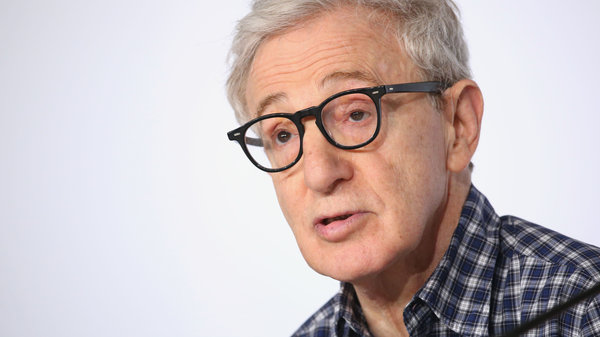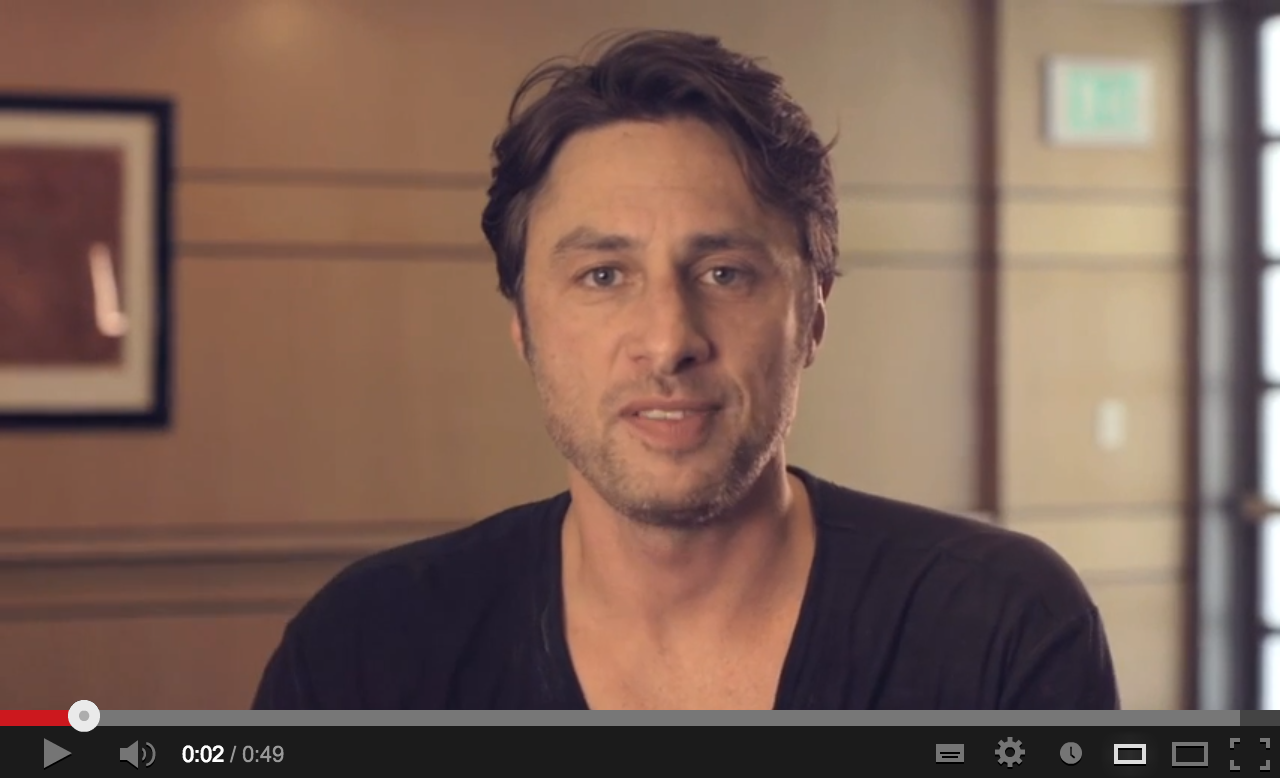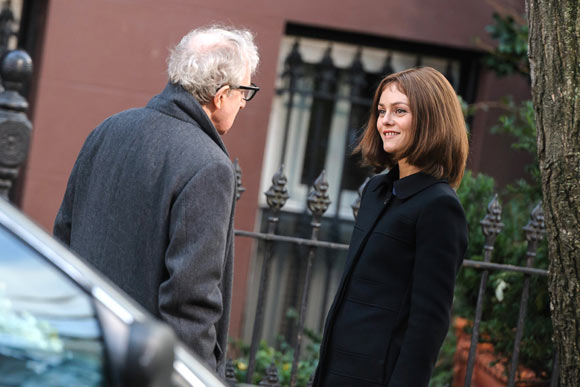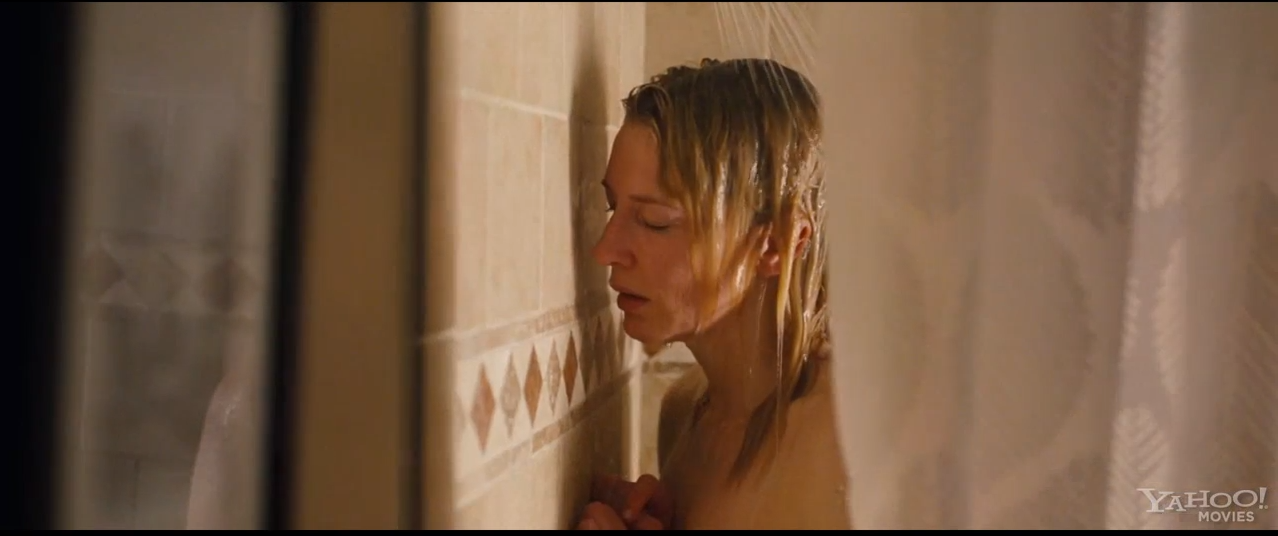
Every year, Woody Allen gives at least one lengthy, revealing interview. This year, that interview belongs to NPR. The interview by Sam Fragoso doesn’t even touch on his new film Irrational Man. Instead he gets a very candid Allen talking about his filmmaking habits and his personal relationships.
Fragoso did a great job of asking some challenging questions in a professional manner. First, he asks Allen if he would benefit from a less prolific schedule.
Have you considered scaling back, making a film every few years?
It wouldn’t help. It’s not that I feel, “Oh, if I had more time or more money, I could make this better.” It’s coming to terms with the shortcomings in one’s own gift and one’s own personality.
What are your major shortcomings?
I’m lazy and an imperfectionist. Steven Spielberg and Martin Scorsese will work on the details until midnight and sweat it out, whereas for me, come 6 o’clock, I want to go home, I want to have dinner, I want to watch the ball game. Filmmaking is not [the] end-all be-all of my existence. Another shortcoming is that I don’t have the intellect or the depth or the natural gift. The greatness is not in me. When you see scenes in [Akira] Kurosawa films … you know he’s a madman on the set. There would be 100 horses and everything had to be perfect. He was crazy. I don’t have any of that.
Allen talked about never trying drugs.
Have you experimented with drugs recreationally or for creative purposes?
I’ve never done any drugs whatsoever. I’ve never taken a puff of marijuana. I’ve never taken a recreational pill of any sort. I can barely bring myself to take two Extra Strength Excedrin.
Not once?
No, and I don’t even have the curiosity. People say all the time, “Aren’t you curious?” But I’m not a curious person. I’m not curious to travel, but I do because my wife likes it. I’m not curious to see other places, I’m not curious to try new things. I go to the same restaurants all the time and my wife is always saying, “Let’s try something new!” I don’t enjoy that. When Elaine’s was open in New York, I ate every dinner, seven nights a week, for 10 [to] 12 years.
Allen echoed sentiments on his upcoming 2016 Amazon Series.
You’re making a series for an online audience with Amazon.
Right, I’ve never seen one. I think they’re going to be embarrassed. They’re going to regret that they started up with me. I’m doing my best. I’m working a six-episode series.
They’re no good?
I have grave doubts about them. I thought it was going to be an easy score. Movies are not easy, but it’s not a cinch. I don’t want to disappoint them.
On analysis.
How long have you been seeing an analyst?
Well, not continually. I was in analysis when I was 20 and then stopped for a while, then saw a shrink when I was a little older. I’ve been in and out. Now I check in once a week just to charge the batteries.
Fragoso then turned the conversation to love and relationships.
Since you are nearing 80, I’m curious: Do you still believe “love fades,” as Annie Hall claims?
It fades almost all the time. Once in a while you get lucky and get into a relationship that lasts a very long time. Even a lifetime. But it does fade. Relationships are the most difficult thing people deal with. They deal with loneliness, meeting people, sustaining relationships. You always hear from people, “Well, if you want to have a good relationship you have to work at it.” But there’s nothing else in your life that you really love and enjoy that you have to work at. I love music, but I don’t have to work at it. A guy likes to go out boating on the weekends, he doesn’t think, “Oh, I have to work at it.” He can’t wait to leave work to get to it. That’s the way you have to feel about your relationship. If you feel that you have to work at it — a constant business of looking the other way, sweeping stuff under the rug, compromising — it’s not working.
Do you feel that way now with [your wife] Soon-Yi Previn?
I lucked out in my last relationship. I’ve been married now for 20 years and it’s been good. I think that was probably the odd factor that I’m so much older than the girl I married. I’m 35 years older, and somehow, through no fault of mine or hers, the dynamic worked. I was paternal. She responded to someone paternal. I liked her youth and energy. She deferred to me, and I was happy to give her an enormous amount of decision making just as a gift and let her take charge of so many things. She flourished. It was just a good luck thing.
And finally – on his film audience’s opinion of him, and it’s effect on his box office.
The separation between church and state, artists and their personal lives — do you think the allegations [that you sexually abused your adopted daughter, Dylan Farrow,] have affected how people approach your movies?
I would say no. I always had a small audience. People did not come in great abundance and they still don’t, and I’ve maintained the same audience over the years. If the reviews are bad, they don’t come. If the reviews are good, they probably come.
You really don’t believe they carry in that external baggage into the theater?
Not for a second. It has no meaning in the way I make movies, too. I never see any evidence of anything in my private life resonating in film. If I come out with a film people want to see they flock to see it, which means they see it to degree of Manhattan or Annie Hall or Midnight in Paris. That’s my outer limits. If I come out with a film they don’t want to see, they don’t come.
There is a lot more in the interview at NPR, and it is definitely worth a read.




